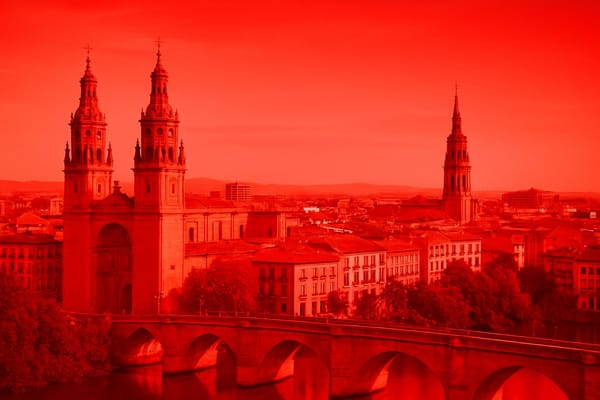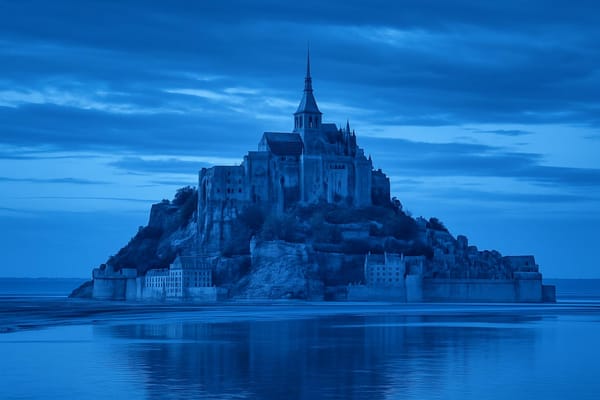Nantes
Top attractions: riverside château, historic cathedral, giant mechanical elephant, art & gourmet food.

Important things to know about Nantes
Nantes, located in western France on the banks of the Loire River, is a dynamic city where history and modern urban life intersect, offering a textured portrait of regional identity, economic vitality, and cultural creativity; its past as a trading and shipbuilding center informs a present defined by diverse industries, a growing technology and startup scene, and a strong emphasis on sustainable development and green urban planning that reimagines former industrial zones as lively neighborhoods for locals and students alike. The urban fabric of Nantes combines wide boulevards, leafy parks, and waterfront corridors that reflect a temperate, maritime climate and an openness to cycling and public transport, fostering a daily rhythm shaped by markets, cafés, university life, artisanal workshops, and a rich culinary tradition rooted in local produce and Atlantic influences. Demographically, the city balances long-standing families with an influx of young professionals and an active student population, producing a mix of innovation, artistic expression, and social initiatives that contribute to a resilient local economy and a collaborative civic culture. Language, music, contemporary arts, and gastronomy all play roles in Nantes’s evolving identity, while municipal policies emphasize social inclusion, urban mobility, and environmental stewardship; this combination sustains a reputation as a forward-looking regional capital in western France that continuously reinvents itself without losing the distinctive character shaped by its riverine geography and historical layers.
Sightseeing hot-spots in Nantes
Nantes is a vibrant city in western France that blends rich history with contemporary creativity, making it a top destination for sightseeing. At the heart of the historic center stands the impressive Château des Ducs de Bretagne, where medieval ramparts house museums that trace the city's past. Nearby, the soaring Cathédrale Saint-Pierre et Saint-Paul offers stunning Gothic architecture and serene cloisters, while the Musée d'Arts presents both classical and modern collections. For visitors searching for what to see in Nantes, the compact city center makes it easy to stroll between squares, cafes and notable monuments that showcase the region's heritage along the Loire.
On the Loire’s riverbanks, the island atmosphere of Île de Nantes reveals the city's inventive side with the world-famous Les Machines de l'île, a spectacular combination of art, engineering and performance anchored by a colossal mechanical elephant. The elegant Passage Pommeraye invites window-shopping beneath ornate 19th-century architecture, and the serene Jardin des Plantes provides a peaceful botanical escape. Museums, contemporary art spaces and riverside promenades create a varied itinerary for things to do in Nantes, while waterfront terraces and local markets emphasize the city’s lively cultural scene and gastronomy.
Practical sightseeing tips help travelers make the most of Nantes: exploring on foot or by bicycle lets you discover hidden streets and courtyard cafes, river cruises offer unique views of port areas, and city passes can combine attractions for convenience. Spring and early autumn are ideal for milder weather and festivals, but year-round events and exhibitions keep Nantes buzzing. Whether you’re planning a weekend break or a longer stay, the best attractions in Nantes balance history, innovation and local charm, making it a must-see French destination.
Hotels to enjoy in Nantes
Nantes is a vibrant city where hotels in Nantes range from elegant boutique stays tucked into historic streets to modern riverfront properties with sweeping views of the Loire. Whether you're searching for Nantes hotels near the lively Bouffay quarter or a quiet lodging on Ile de Nantes, the city's accommodation scene caters to every traveler. Many visitors choose to stay centrally to explore landmarks like the Château des Ducs and the Graslin district on foot, while business travelers often favor hotels close to the train station for easy access to Paris and the Atlantic coast. Seasonal festivals, creative museums, and a thriving food scene mean that the best hotels strike a balance between comfort and location, offering amenities such as free Wi‑Fi, breakfast buffets, and eco-friendly options that reflect Nantes' progressive spirit.
When planning your stay, consider what matters most-proximity to attractions, family-friendly rooms, or budget conveniences-because Nantes provides diverse choices from luxury suites to practical value hotels. Booking in advance can secure better rates, and looking for properties labeled family-friendly or business-ready will help pinpoint the right fit. Travelers keen on culture may prefer a historic hotel near the Château des Ducs, while art lovers might book on Ile de Nantes to be close to contemporary galleries and the Machines de l’île. With excellent public transit and compact neighborhoods, choosing one of the many well-rated hotels in Nantes ensures you can experience the city's unique blend of history, creativity, and riverside charm.
Restaurants to try in Nantes
Nantes has become a magnet for food lovers, and the restaurants of Nantes showcase a vibrant mix of tradition and creativity that draws both locals and visitors. From cozy bistros tucked into the historic center to modern dining rooms on the Loire riverside, the dining options reflect a strong commitment to local produce and coastal flavors. Chefs in Nantes emphasize sustainable sourcing from the surrounding Loire-Atlantique region, pairing fresh seafood with seasonal vegetables and artisanal cheeses. Whether you search for restaurants in Nantes that specialize in classic French fare, inventive bistronomy, or international fusion, the city offers a range of atmospheres - intimate candlelit tables, bustling market-side cafés, and lively wine bars where sommeliers celebrate natural and regional wines.
For travelers and foodies hunting the best restaurants in Nantes, timing and openness to exploration pay off: lunchtime menus often spotlight the freshest catch and lunch bargains, while evening service highlights tasting menus and wine pairings. The city's food scene is amplified by weekly markets, pop-up supper clubs, and culinary festivals that bring attention to emerging chefs and seasonal menus, making Nantes a dynamic culinary destination worth researching before your visit. Reservations are recommended at popular spots, especially during festival weekends and summer months, and experimenting with less-touristed neighborhoods can lead to memorable meals that define the unique charm of Nantes dining. Whether you write “Nantes restaurants” into a search or follow a food blogger’s recommendation, you’ll find a culinary landscape that balances tradition and innovation for a distinct, memorable experience.
Best shopping stops in Nantes
Nantes is a vibrant destination for shopping, blending historic charm with contemporary style, and the shopping highlights of Nantes reflect that mix perfectly. Strolling through the city you’ll discover the elegant Passage Pommeraye, a 19th-century covered gallery where boutiques and artisan shops sit beneath carved stone and wrought iron balconies, offering a refined shopping experience. The lively streets of Bouffay and Rue Crébillon are packed with independent créateurs, well-known French brands and vintage stores, making them ideal for fashion hunters and design lovers alike. Foodies and home cooks should not miss the Marché de Talensac, a bustling local market where fresh produce, cheeses and regional specialties make for unforgettable culinary souvenirs. From contemporary concept stores on the Île de Nantes to fashionable department stores like Galeries Lafayette, the city caters to every budget and taste.
What makes shopping in Nantes especially appealing is the blend of local craftsmanship and sustainable design: expect to find unique pieces from local designers, artisanal jewelry, and eco-conscious brands alongside antiques and second-hand treasures. The compact, walkable layout of the city encourages discovery, with charming side streets revealing pop-up shops and ateliers that change with the seasons. Seasonal markets and creative fairs add further variety, so whether you’re searching for a designer handbag, vintage finds, or authentic regional gifts, the best places to shop in Nantes deliver an engaging, culturally rich experience that keeps both visitors and locals coming back.
Nightlife highlights in Nantes
Nantes, France, comes alive after dusk with a vibrant nightlife that blends historic charm and modern creativity. Stroll from the medieval streets of Bouffay to the riverside buzz of the Île de Nantes, where intimate cocktail bars, craft breweries and lively terraces keep locals and visitors mingling late into the evening. Cultural hotspots such as Le Lieu Unique and Stereolux regularly host concerts, DJ sets and experimental performances, making live music and contemporary art central to the city's nocturnal appeal. Whether you prefer a relaxed glass of wine in a tucked-away cellar or a high-energy club night, Nantes offers a variety of atmospheres that satisfy different tastes.
For travelers searching for things to do in Nantes at night, the city delivers memorable options from refined cocktails to underground electronic sets and open-air summer events. Dinner can easily turn into a progressive bar crawl that highlights the best bars in Nantes and friendly neighbourhood joints in Trentemoult, while late-night eats keep the evening going. With a focus on quality programming and a welcoming local scene, Nantes’s nightlife stands out in western France for its cultural variety, accessibility and the seamless way it blends historic streets with contemporary entertainment like intimate concerts and top-tier clubs in Nantes.
Getting around in Nantes
Nantes offers efficient and traveler-friendly airport and train connections: Nantes Atlantique airport lies just outside the city and is easily reached from downtown by frequent airport shuttles, buses, taxis and car hire with a typical journey time of around 20–30 minutes depending on traffic, while the city’s main rail hub, the Gare de Nantes, provides seamless links across France and the region via fast TGV to Paris (about two hours), regular TER regional services and Intercités trains to Brittany, Pays de la Loire and beyond. Both hubs are well integrated into Nantes’ tram and bus network, making transfers straightforward for tourists and business travelers, and luggage-friendly connections are available for early flights and late arrivals. For those optimizing travel routes, the combination of quick airport access and a central, modern train station means Nantes is an excellent gateway for exploring western France or connecting onward to European destinations, with plenty of options for timetables, ticket types and multimodal journeys to suit both short city breaks and longer itineraries.
Culture must-see's in Nantes
Nantes is a city where history and creativity meet, offering visitors a rich tapestry of cultural highlights that make it a must-see in France. In the historic center, the imposing Château des Ducs de Bretagne anchors a story of maritime trade, civic life, and architectural heritage, while cobbled streets lead to lively squares and museums that celebrate both the past and the contemporary. Nantes is also famously the birthplace of Jules Verne, a literary connection that infuses the city with a spirit of imagination visible in plaques, exhibitions, and family-friendly cultural trails. For those searching for things to do in Nantes, the combination of grand monuments, intimate galleries, and riverside promenades creates a balanced cultural itinerary that appeals to art lovers, history buffs, and casual travelers alike.
The modern cultural pulse of Nantes beats on the Île de Nantes and in innovative venues such as Le Lieu Unique, a former biscuit factory turned multidisciplinary arts center, and the unforgettable Les Machines de l'île, where mechanical beasts and interactive displays blur the line between sculpture and spectacle. Annual events like film and music festivals bring international attention to the city, while the Musée d’Arts de Nantes showcases evolving collections of painting, sculpture, and contemporary installations. Street art, creative markets, and scenic green spaces add to the city’s vibrant cultural life, making Nantes a destination where historic heritage and forward-looking cultural programming combine to create memorable experiences for locals and tourists planning to visit Nantes.
History of Nantes
Nantes, France, traces its roots to a strategic location on the banks of the Loire River, where Celtic and Roman influences laid the foundations for a city that would become a major Atlantic port. The history of Nantes as a regional capital began in the medieval period when it emerged as the seat of the Duchy of Brittany, its Château des ducs de Bretagne standing as a testament to the city’s feudal power and architectural heritage. Through the late Middle Ages and into the Renaissance, Nantes grew in wealth and cultural importance, becoming a crossroads of trade, religion, and political power. The city’s maritime role intensified during the Age of Discovery, and while that era enriched Nantes economically, it also tied the city to the darker chapters of the transatlantic slave trade, a complex and painful part of its past that modern Nantes has been confronting through memorials and public history efforts. Throughout these centuries, craftsmen, merchants, and clergy shaped an urban fabric of narrow streets, religious institutions, and fortified walls that later gave way to more open, planned boulevards.
The industrial and modern eras transformed Nantes into a center of industrial revolution activity, with shipbuilding, commerce, and manufacturing driving rapid urban expansion in the 19th and early 20th centuries. The decline of heavy industry in the late 20th century prompted ambitious urban renewal projects that repositioned Nantes as a hub of culture, technology, and sustainable development. Landmark initiatives such as the reinvention of the Île de Nantes and the creation of Les Machines de l'île-a whimsical public art and engineering project-have helped the city blend innovative design with historical preservation. Today, visitors and residents alike engage with a city that honors its past through museums, restored monuments, and commemorative spaces while pursuing a dynamic future of green transport, digital industries, and creative tourism. The evolving narrative of Nantes balances remembrance and reinvention, making its story an essential chapter in the broader history of western France.



